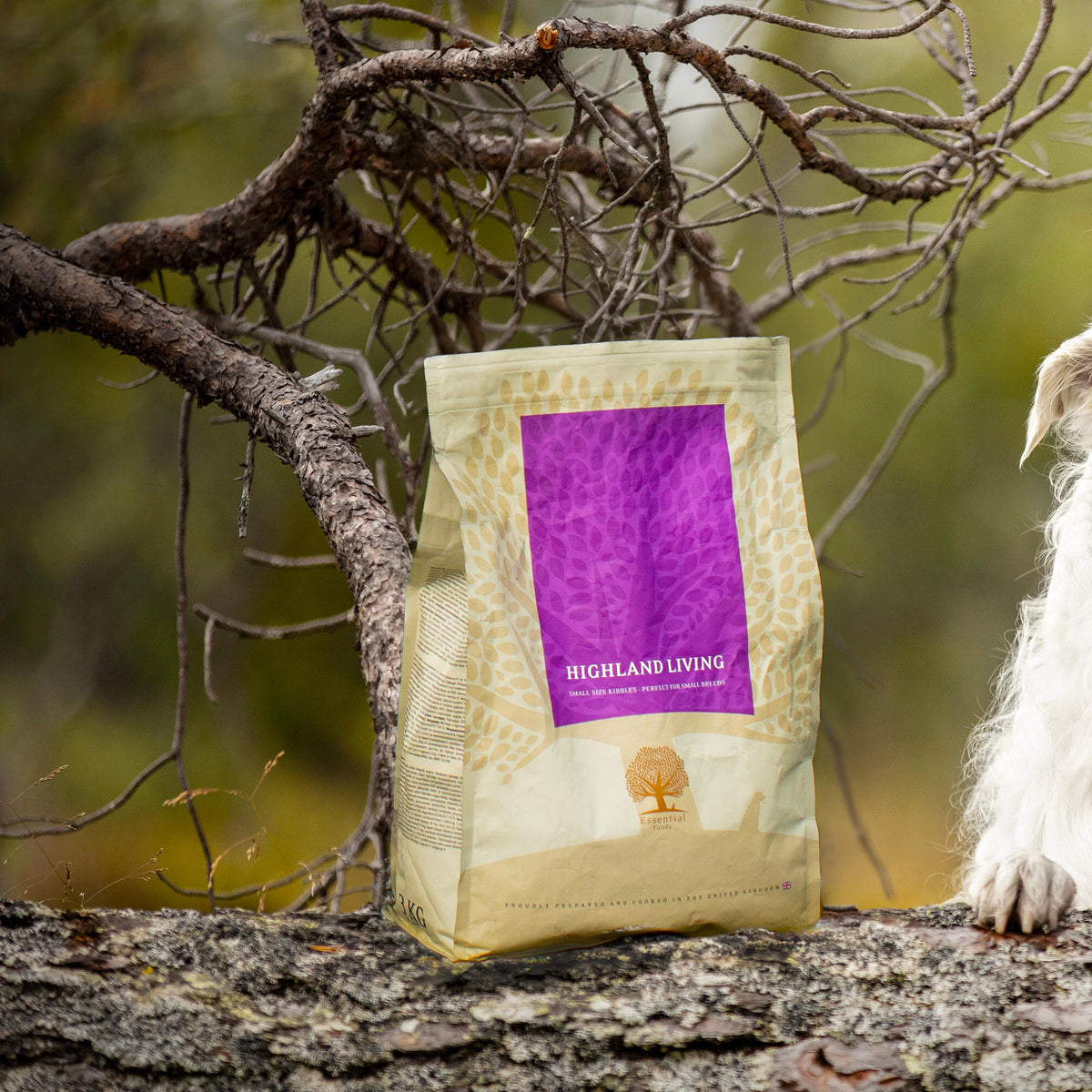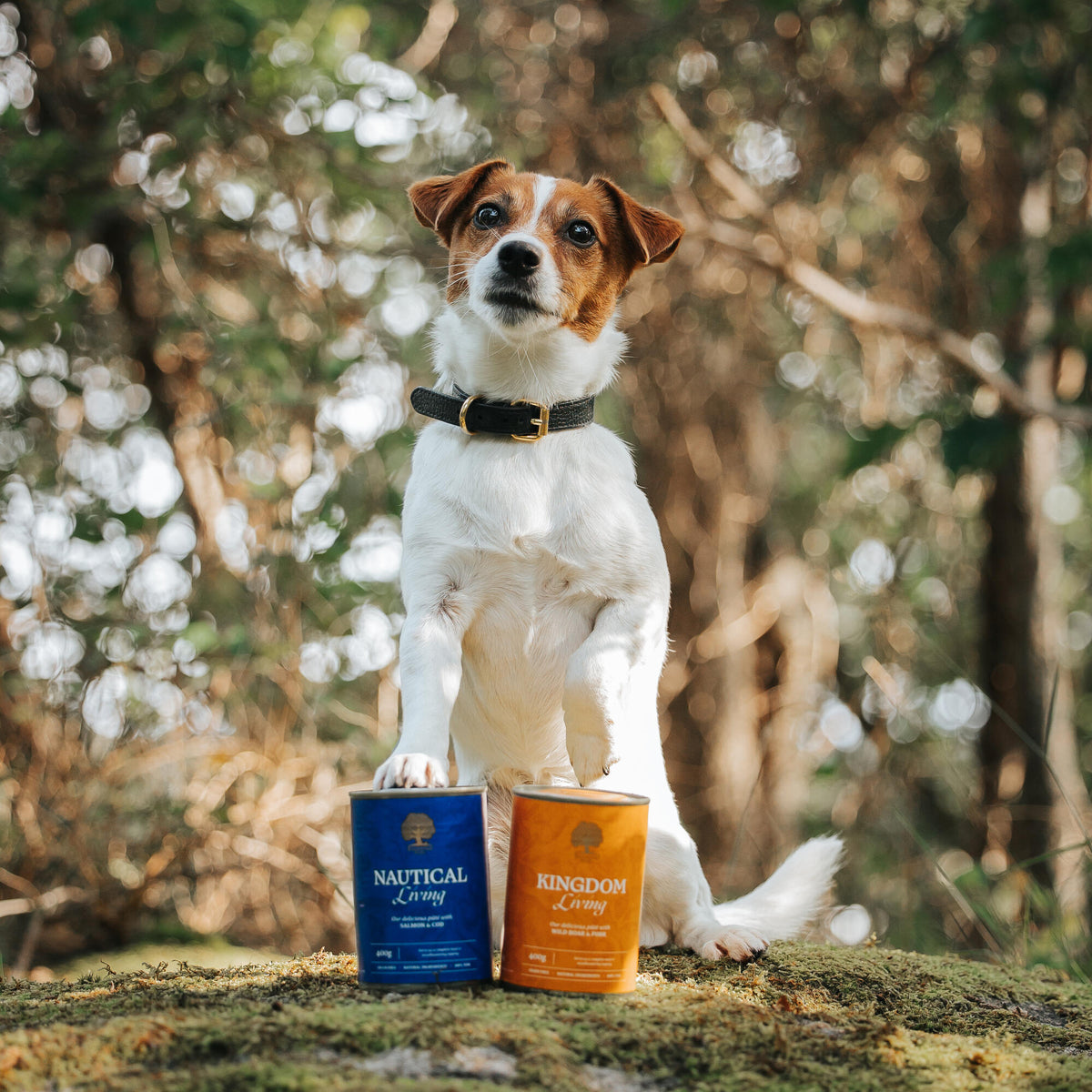Your Cart is Empty

Choosing the right food for your German Shepherd puppy can be a daunting task. With so many options on the market, it’s easy to get lost in a sea of brands, ingredients, and marketing claims. However, providing the best nutrition for your growing puppy is essential to ensure they develop into a strong, healthy adult dog. In this article, we will explore what makes a puppy food the best for a German Shepherd and why Essential Foods puppy food is the ideal choice for your pup.
German Shepherd puppies are energetic, active, and known for their rapid growth. Because of this, they require a well-balanced diet rich in specific nutrients to support their developing muscles, bones, and immune system.
The food you choose for your German Shepherd puppy lays the foundation for their future health. Proper nutrition can prevent issues like hip dysplasia, obesity, and other health problems common in the breed. Therefore, investing in high-quality puppy food is crucial for their long-term wellbeing.
Many dog owners make the mistake of choosing puppy food based on price or brand recognition alone. However, it’s important to look beyond the label and examine the ingredients and nutritional profile. Avoiding common mistakes, like choosing low-protein or grain-heavy foods, can make a significant difference in your puppy’s health.
To ensure your German Shepherd puppy grows up healthy and strong, it’s important to meet their specific nutritional needs.
German Shepherds are a large, muscular breed that requires a diet rich in protein to support their muscle development.
High-quality animal proteins are essential for the growth and repair of tissues in German Shepherd puppies. These proteins should come from real meat sources like chicken, lamb, or fish.
Amino acids, the building blocks of protein, are vital for your puppy’s growth. Foods with high protein content ensure that your puppy receives all the essential amino acids they need.
Omega-3 fatty acids are crucial for a variety of bodily functions in puppies, particularly for brain development and maintaining a healthy coat.
Omega-3s help reduce inflammation and keep your puppy’s skin healthy, resulting in a shiny, soft coat.
DHA, a type of Omega-3 fatty acid, is essential for cognitive development, helping your puppy learn and grow.
The debate around grain-free diets for dogs is ongoing, but for German Shepherd puppies, a grain-free diet can have specific benefits.
Some puppies are sensitive to grains, leading to digestive issues and allergies. A grain-free diet can help avoid these problems.
Grain-free diets often use alternative carbohydrate sources that are easier for dogs to digest, improving overall digestive health.
The ingredients in your puppy’s food directly affect their health and development. Here’s what to look for.
Meat is the primary source of protein in a dog’s diet and is crucial for their overall health.
Look for puppy foods that list real meat as the first ingredient, such as chicken, beef, or fish.
While plant-based proteins can be part of a dog’s diet, they don’t provide the same amino acid profile as animal proteins, making them less ideal for growing puppies.
Carbohydrates provide energy for your active German Shepherd puppy, but not all carbs are created equal.
Sweet potatoes, peas, and lentils are excellent sources of carbohydrates that provide sustained energy without spiking blood sugar levels.
Foods with a low glycemic index prevent spikes in blood sugar, which is important for maintaining stable energy levels and preventing obesity.
In addition to protein and carbohydrates, your puppy needs a balanced diet of vitamins, minerals, and other nutrients.
Calcium and phosphorus are crucial for the development of strong bones and teeth in puppies.
Fiber helps regulate digestion and maintain a healthy gut, preventing constipation and promoting overall digestive health.
When it comes to finding the best puppy food for your German Shepherd, Essential Foods stands out for several reasons.
Essential Foods is known for its commitment to high-quality ingredients and its unique B.O.F (Behavioral Optimizing Foods) principle.
Essential Foods’ puppy food is grain-free, making it an excellent choice for puppies with grain sensitivities or allergies.
The inclusion of extra Omega-3 fatty acids in Essential Foods puppy food supports cognitive development and ensures a healthy, shiny coat.
With a focus on high protein levels, Essential Foods provides your puppy with the essential building blocks they need for muscle development and overall health.
The B.O.F principle helps maintain stable blood sugar levels, preventing energy spikes and crashes, which can affect your puppy’s behavior and health.
Essential Foods boasts a high meat content, ensuring your puppy gets the protein they need. Additionally, the excellent palatability means your puppy will love the taste, making mealtime enjoyable.
Switching to a new puppy food should be done gradually to avoid digestive upset.
Start by mixing a small amount of Essential Foods with your puppy’s current food, gradually increasing the ratio over 7 days until your puppy is eating only Essential Foods.
During the transition, monitor your puppy’s digestion and energy levels. Some puppies may experience mild digestive upset, which should resolve as they adjust to the new food.
In conclusion, the best dog food for a German Shepherd puppy is one that meets all their nutritional needs while also being highly palatable. Essential Foods puppy food is an excellent choice because it’s grain-free, rich in Omega-3 fatty acids, high in protein


